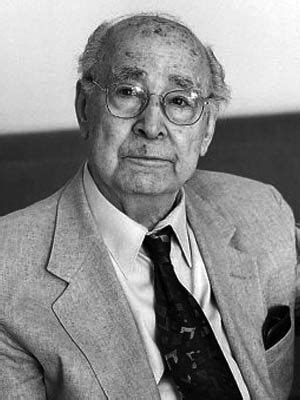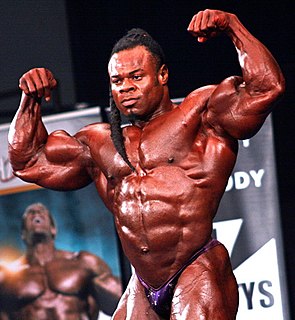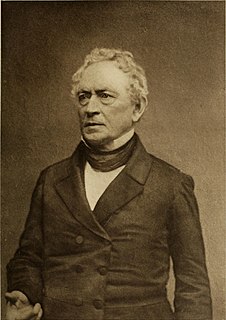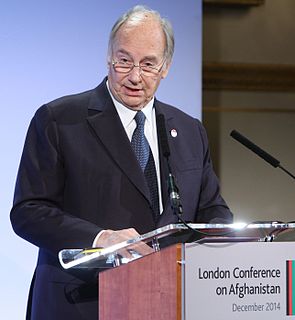A Quote by Thomas Steven Molnar
Passion for equality blinds the utopian to the fact that society, as a whole, is based on inequality of men in two respects: the inventor, the innovator, the exceptional man creates something new and insures continuous progress; the others emulate his work or merely improve their own lot by benefiting from his creativity.
Related Quotes
There is, in fact, a manly and lawful passion for equality which excites men to wish all to be powerful and honored. This passion tends to elevate the humble to the rank of the great; but there exists also in the human heart a depraved taste for equality, which impels the weak to attempt to lower the powerful to their own level, and reduces men to prefer equality in slavery to inequality with freedom.
There is nothing more difficult to plan, more doubtful of success, nor more dangerous to manage than the creation of a new order of things..... Whenever his enemies have occasion to attack the innovator they do so with the passion of partisans, while the others defend him sluggishly so that the innovator and his party alike are vulnerable.
There is in fact a manly and legitimate passion for equality that spurs all men to wish to be strong and esteemed. This passion tends to elevate the lesser to the rank of the greater. But one also finds in the human heart a depraved taste for equality, which impels the weak to want to bring the strong down to their level, and which reduces men to preferring equality in servitude to inequality in freedom.
Utopian fiction is really boring. I had to read a lot of it, and it's not that much fun. But they're fascinating to me as historical documents. Cabet [Icaria's founder and author of the utopian novel, Travels in Icaria], is writing in the 1830s, and his idea of the perfect society reveals a lot about his time. But his book is uniquely bad.
It’s therapy. It’s just something to do so you’re not lost in your own not-so-nice thoughts, and it’s an opportunity to think about something a lot nicer and to do something that’s with more purpose. So you do it, and you take your passion and you put a lot into it, and at some point you get recognized for it. But that recognition doesn’t mean the man is without his own demons or without his own struggles.
Socialism is the doctrine that man has no right to exist for his own sake, that his life and his work do not belong to him, but belong to society, that the only justification of his existence is his service to society, and that society may dispose of him in any way it pleases for the sake of whatever it deems to be its own tribal, collective good.
A great character, founded on the living rock of principle is, in fact, not a solitary phenomenon, to be at once perceived, limited, and described. It is a dispensation of Providence, designed to have not merely an immediate, but a continuous, progressive, and never-ending agency. It survives the man who possessed it; survives his age,--and perhaps, his country, his language.
We must begin by acknowledging that there is a complete absence of two things in Indian Society. One of these is equality. On the social plane we have an India based on the principles of graded inequality, which means elevation for some and degradation for others. On the economic plane we have a society in which there are some who have immense wealth as against many who live in abject poverty.
In Islamic belief, knowledge is two-fold. There is that revealed through the Holy Prophet (s.a.s.) and that which man discovers by virtue of his own intellect. Nor do these two involve any contradiction, provided man remembers that his own mind is itself the creation of God. Without this humility, no balance is possible. With it, there are no barriers. Indeed, one strength of Islam has always lain in its belief that creation is not static but continuous, that through scientific and other endeavours, God has opened and continues to open new windows for us to see the marvels of His creation
Man—every man—is an end in himself, not a means to the ends of others; he must live for his own sake, neither sacrificing himself to others nor sacrificing others to himself; he must work for his rational self-interest, with the achievement of his own happiness as the highest moral purpose of his life.
The demagogue is usually sly, a detractor of others, a professor of humility and disinterestedness, a great stickler for equality as respects all above him, a man who acts in corners, and avoids open and manly expositions of his course, calls blackguards gentlemen, and gentlemen folks, appeals to passions and prejudices rather than to reason, and is in all respects, a man of intrigue and deception, of sly cunning and management.
As the worldly philosophers of the past affirmed, the goal of economics is to improve the way society functions. In The New Financial Order, Robert Shiller joins this proud tradition by directing his brilliant economic skills toward the creation of financial institutions designed to reduce the risks an unknown future visits on most members of our society and others. Shiller's imaginative and compelling analysis will appeal to all readers who share his passion for initiating not only a richer, but a better, century.






































